Dog Coughing and Sneezing: Cause and Treatment
Sneezing and coughing in dogs is normal, but excessive sneezing and coughing can be a sign of a health problem. There are many reasons why dogs sneeze and cough, and this article will explore the causes and treatment of sneezing and coughing in dogs.
Why is My Dog Sneezing and Coughing?
There could be several reasons why your dog is sneezing and coughing. If your dog is experiencing persistent or concerning symptoms, it's best to consult a veterinarian for a proper diagnosis and advice. Here are a few potential causes for sneezing and coughing in dogs:
Causes of Sneezing in Dogs
1. Allergies
Dogs sneeze due to allergies because they may have allergic reactions to airborne pollen, dust mites, mold, bacteria, and other substances called allergens.
When an allergen enters a dog's body, its immune system produces specific antibodies to IgE, which bind to the allergen and activate other cells to produce histamine chemicals. Histamine is one of the key substances that cause inflammation and other allergic reactions, which can lead to swelling of the mucosal tissue and increased secretions in dogs, which in turn can lead to symptoms such as sneezing and a runny nose.
In addition, a dog's allergen sensitivity may change with age. Some dogs are not sensitive to certain allergens when they are young, but may develop allergic reactions as they get older. In addition, a dog's breed, genetics, and environment can affect its sensitivity to allergens.

2. Reverse Sneezing
Reverse sneezing is a common occurrence in dogs, especially brachycephalic breeds. It is characterized by rapid, forceful inhalation accompanied by snorting or honking sounds. Reverse sneezing is typically harmless and often triggered by excitement, pulling on the leash, or irritants in the air.

3. Diseases and Infections
Dental Issues: Dental problems, such as tooth root abscesses or periodontal disease, can cause referred pain to the nasal area, leading to sneezing.
Upper respiratory tract infections: Upper respiratory tract infections are infections that affect the nose, throat, larynx and trachea. Dogs can develop upper respiratory infections due to viral or bacterial infections, resulting in symptoms including sneezing, runny nose and coughing.
Parasitic infections: Certain parasitic infections may cause symptoms such as sneezing and a runny nose in dogs. For example, nasal mite infections may cause itching and sneezing in your dog's nose.
Nasal Tumors: While relatively rare, nasal tumors can cause chronic sneezing in dogs. Other symptoms may include bloody discharge, facial swelling, or difficulty breathing.
Foreign Objects: If your dog has inhaled or ingested a foreign object, it can cause irritation and lead to coughing and sneezing as the body tries to remove the object.

3. Environmental Irritation
Dogs will sneeze in response to environmental irritants such as dust, pollen, strong odors or smoke. Similar to humans, sneezing helps them clear their nasal passages.
At the same time, some cleaning products, aromatherapy, tobacco smoke, etc. may also have an irritating effect on the dog's respiratory tract, causing sneezing and other symptoms.
4. Climate Change
It is common for dogs to sneeze frequently due to climate change. When the climate has a large change in temperature, or when the temperature is low, it can cause problems with your dog's cold and fever, triggering symptoms such as sneezing. In addition, changes in temperature and humidity may also have an effect on your dog's respiratory system, causing sneezing.
The Common Symptoms of Sneezing in Dogs
- Sneezing fits
- Nasal discharge
- Itching and rubbing
- Red or swollen nasal passages
- Coughing or gagging
- Watery or irritated eyes
- Reduced appetite or lethargy
Causes of Sneezing in Dogs
There are many causes of runny nose in dogs, most upper and lower respiratory tract infections can cause runny nose in dogs, and sometimes fungus, virus, allergy, and foreign body irritation can also cause related symptoms.

-
A colorless, clear, water-like form of clear nasal discharge may be a symptom caused by upper respiratory tract infection in dogs.
Common causes: cold and flu, odor irritation, Kennel cough -
Grayish-white sticky snot may be caused by acute upper respiratory tract infection.
Common causes: cold and flu, odor irritation -
Sticky nasal snot partly with pus, yellowish-white, sticky, inflammation caused by septic nasal snot.
Common causes: sinusitis -
The texture of nasal mucus is more viscous, almost in the form of batter or oily paste, partially clotted, probably caused by a viral infection or lower respiratory tract infection.
Common causes: canine distemper, pneumonia, bronchitis -
Blood in the nasal discharge, possibly mixed with foam, may be caused by lung problems or more severe sneezing of the dog
Common causes: pulmonary hemorrhage, pulmonary edema, fungal infection, sinusitis, external trauma
Other Causes of Coughing in Dogs
1. Collapsing trachea
Small breed dogs, such as Yorkshire Terriers, Pomeranians, and Chihuahuas, are prone to a condition called collapsing trachea. In this condition, the cartilage rings that support the trachea become weak and cause the trachea to collapse, leading to coughing, particularly during excitement or physical exertion.
2. Foreign body
If a dog ingests or inhales a foreign object, it can become lodged in the respiratory tract, causing irritation and coughing. Common foreign bodies include grass seeds, bones, or small toys. If coughing persists and is accompanied by difficulty breathing, immediate veterinary attention is necessary.
3. Kennel cough
Kennel cough, also known as canine infectious tracheobronchitis, is a highly contagious respiratory infection. It is typically caused by a combination of bacteria and viruses, such as Bordetella bronchiseptica, canine parainfluenza virus, and canine adenovirus. Kennel cough can result in a dry, hacking cough that may be accompanied by retching or gagging.
Symptoms of Coughing in Dogs
- Persistent cough: A cough that lasts for an extended period or occurs frequently. The cough may sound like a honk or a hacking noise, similar to the sound made by a goose or a seal.
- Coughing up mucus or phlegm: The cough may be productive, leading to the expulsion of mucus or phlegm.
- Gagging or retching: In some cases, the coughing episodes may cause the dog to gag or retch, as if trying to clear something from the throat.
- Difficulty breathing: Dogs with a cough may exhibit labored or rapid breathing, especially during or after coughing.
- Lethargy or weakness: If the cough is caused by an underlying illness, the dog may show signs of lethargy, reduced appetite, or general weakness.
- Exercise intolerance: Coughing during or after physical activity may indicate a respiratory issue.
- Wheezing or raspy breathing: Some dogs may exhibit wheezing or have a raspy sound when they breathe, especially if the cough is related to asthma or bronchitis.
- Fever: Infections that cause coughing may be accompanied by an elevated body temperature.
- Nasal discharge: In cases where the cough is caused by an upper respiratory infection, the dog may have a runny nose or discharge from the nose.
How to Help Dogs Relieve Sneezing and Coughing
If your dog is experiencing sneezing and coughing, it's important to determine the underlying cause before attempting any treatment.
Dog Coughing Treatment
To help dogs relieve symptoms such as allergic reactions and sneezing, we can use air purifiers, reduce outdoor activities during pollen season, etc. If your dog's allergy symptoms are severe, consider consulting with your veterinarian and seeking treatment advice. Your veterinarian may recommend medications such as antihistamines or corticosteroids to relieve symptoms.
If your dog is sneezing frequently and you suspect a disease is causing it, prompt consultation with your veterinarian is recommended. A veterinarian can determine the cause of your dog's sneezing through physical examination and testing. Early treatment of the disease or infection can reduce your dog's symptoms and help avoid further complications.

Dogs sneezing due to environmental irritation can be treated by taking the following measures:
- Maintain indoor air circulation, open windows daily and replace air filters regularly.
- Use mite removers regularly to avoid mite and bacteria growth.
- Avoid the use of aromatherapy, mosquito incense, aromatherapy, and other items indoors.
- Regularly clean your dog's body, comb their hair, clean their ears and eyes, etc.
- If your dog has been diagnosed with an allergy to a substance, avoid exposing it to that substance or treat it with specific medication.
Dogs sneezing and other symptoms caused by climate change, pet owners can take the following measures:
- Avoid walking the dog in a highly polluted environment and try to choose a place with fresh air.
- In a dry environment, provide your dog with enough water to maintain the humidity in the room, such as using a humidifier.
- In a humid environment, keep the room dry and regularly clean the furniture and carpets to avoid mold and bacteria breeding.
- Provide your dog with a fresh, balanced diet, such as vitamins, to ensure the health of its immune system and adequate nutrition, thereby reducing the risk of respiratory infections.
- Take your dog for regular medical checkups to detect and treat respiratory problems in a timely manner.
Dog Coughing Treatment
If your dog is coughing, it's important to identify the underlying cause before initiating any treatment. The vet may perform a physical examination, request diagnostic tests such as blood work, x-rays, or a tracheal wash, and then recommend the necessary treatment.
In general, treatment for dog coughing may involve the following:
- Medications: Depending on the underlying cause, your vet may prescribe medications such as antibiotics for bacterial infections, antihistamines for allergies, bronchodilators to open the airways, or cough suppressants to relieve coughing.
- Rest and isolation
- Humidification
- Environmental management
- Supportive care
Preventive Measures
Environmental Hygiene
Regular cleaning and sweeping: This will help reduce the accumulation of dust, bacteria, mold and other contaminants, thus reducing allergic reactions and respiratory problems in dogs.
Keep the air circulating: Keeping the air circulating will reduce the concentration of air pollutants and allergens indoors. You can open windows for ventilation, use an air purifier or air freshener, etc.
Wash your dog and clean its supplies frequently: Bathing and grooming your dog frequently will reduce the accumulation of dander, hair and dirt on your dog. In addition, regular cleaning of your dog's food utensils, toys, bedding, etc. can also reduce the accumulation of bacteria and other contaminants.
By keeping the environment clean and hygienic, you can reduce the incidence of sneezing, thus keeping your dog healthy and comfortable
Healthy Diet
Proper diet and nutrition are vital to your dog's health. They not only support your dog's growth and development but also promote the proper functioning of his body and maintain his immune system and health status.
Provide your dog with a balanced diet: Your dog's diet should contain protein, carbohydrates, and fats and should be based on his age, weight, activity level, and health status. Also, a dog's diet should contain vitamins, minerals, and other nutrients to support its health.
Avoid overfeeding and snacking: Your dog's diet should be kept within appropriate limits and overfeeding and snacking should be avoided. This not only leads to obesity but also increases your dog's risk of developing other health problems.
Provide your dog with plenty of water: Dogs need plenty of water to keep their physiological and metabolic processes functioning properly. Make sure your dog's watering hole is always clean and changed daily with fresh water.
Give your dog the necessary nutritional supplements: In some cases, dogs need additional nutritional support, such as bone and joint health, skin and coat health.
 |
 |
You May Also Like
View all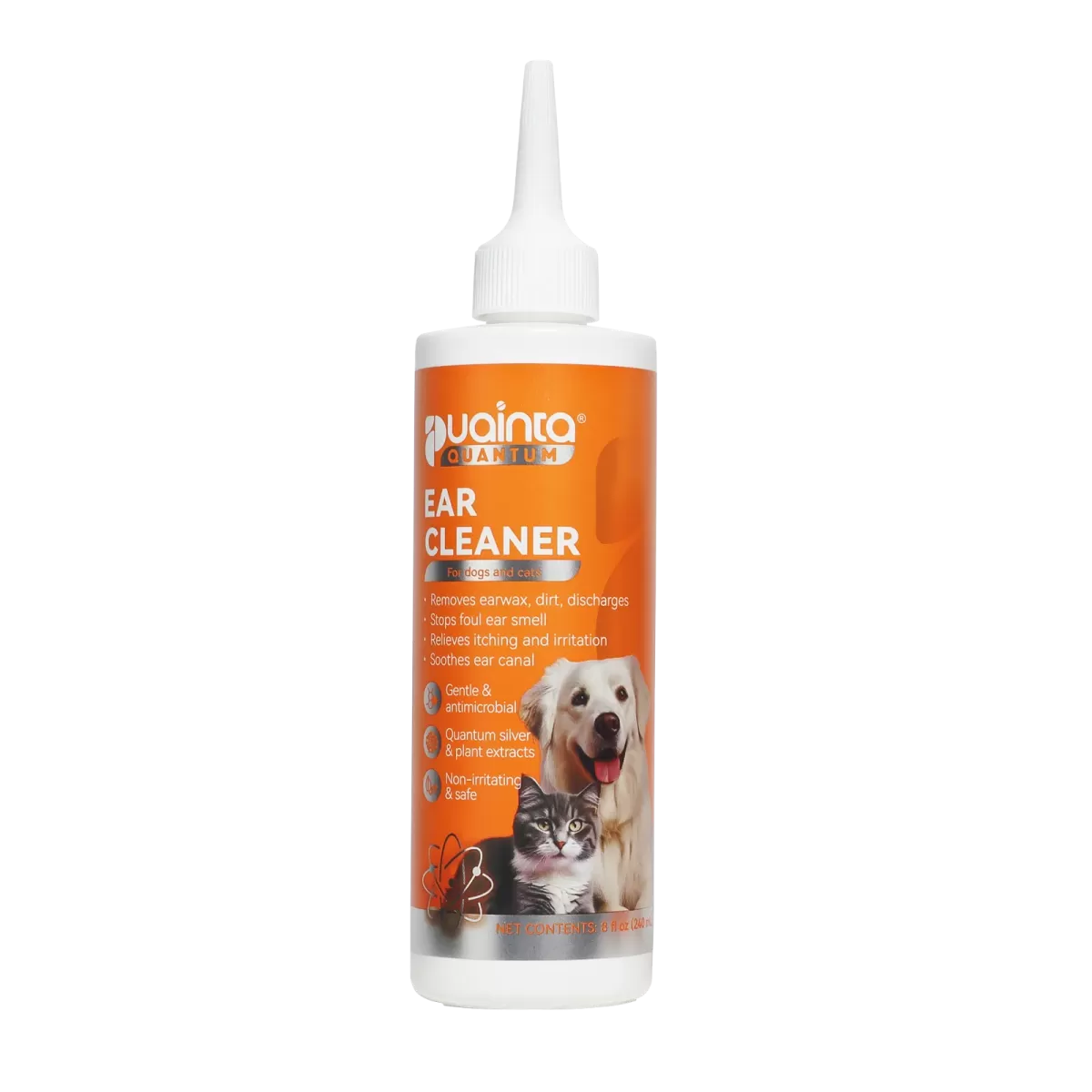
Puainta® Quantum Ear Cleaner for Dog/Cat's Itch Infection

Puainta® Pest Control Collar for Dogs/Cats

Puainta® Banov Shampoo for Skin Disease, 8 floz
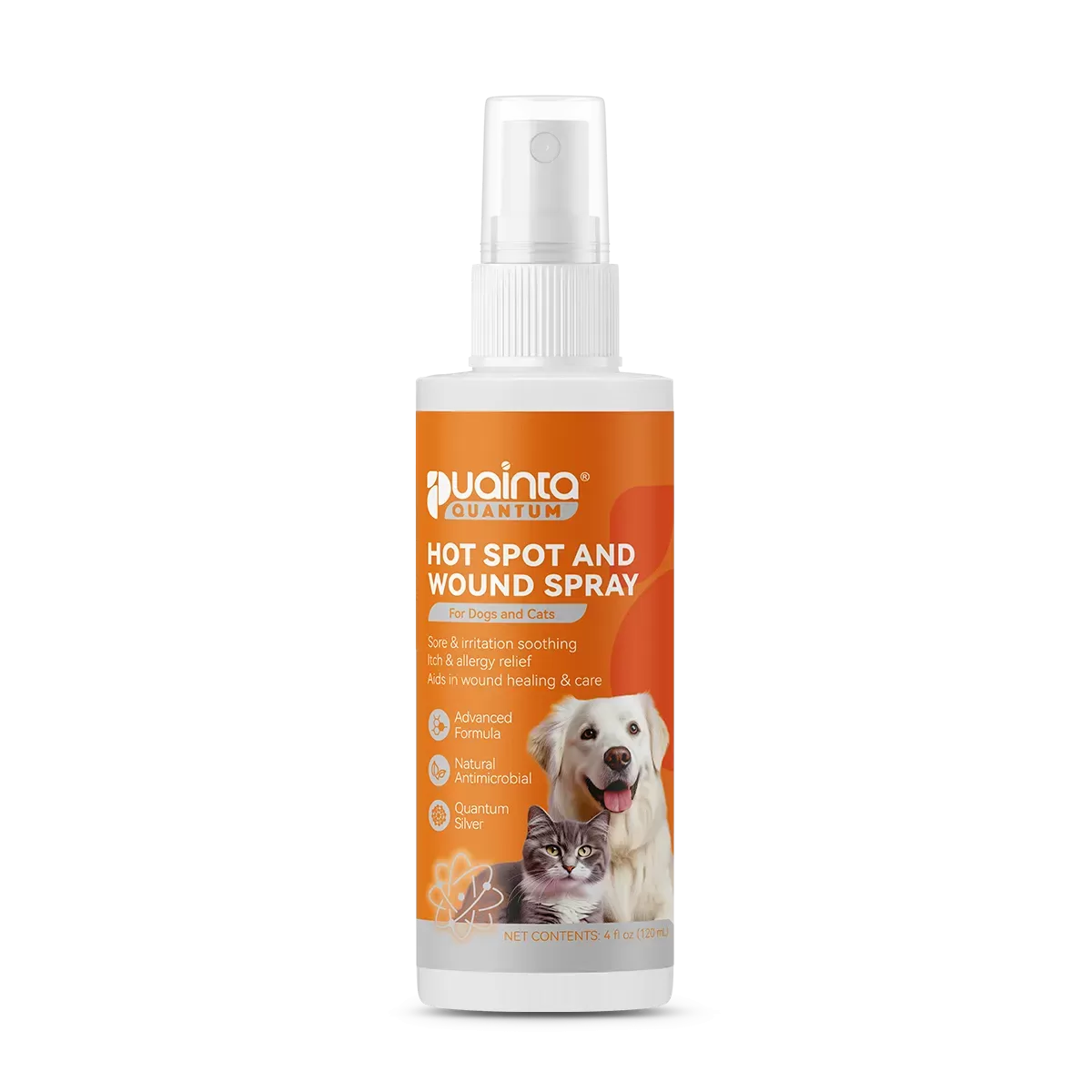
Puainta® Quantum Silver Anti-itch Skin Spray for Dogs/ Cats, Upgraded Pipot Mange Relief
What Pet Parents Are Saying
Take more videos of pet usage, for a chance to be featured
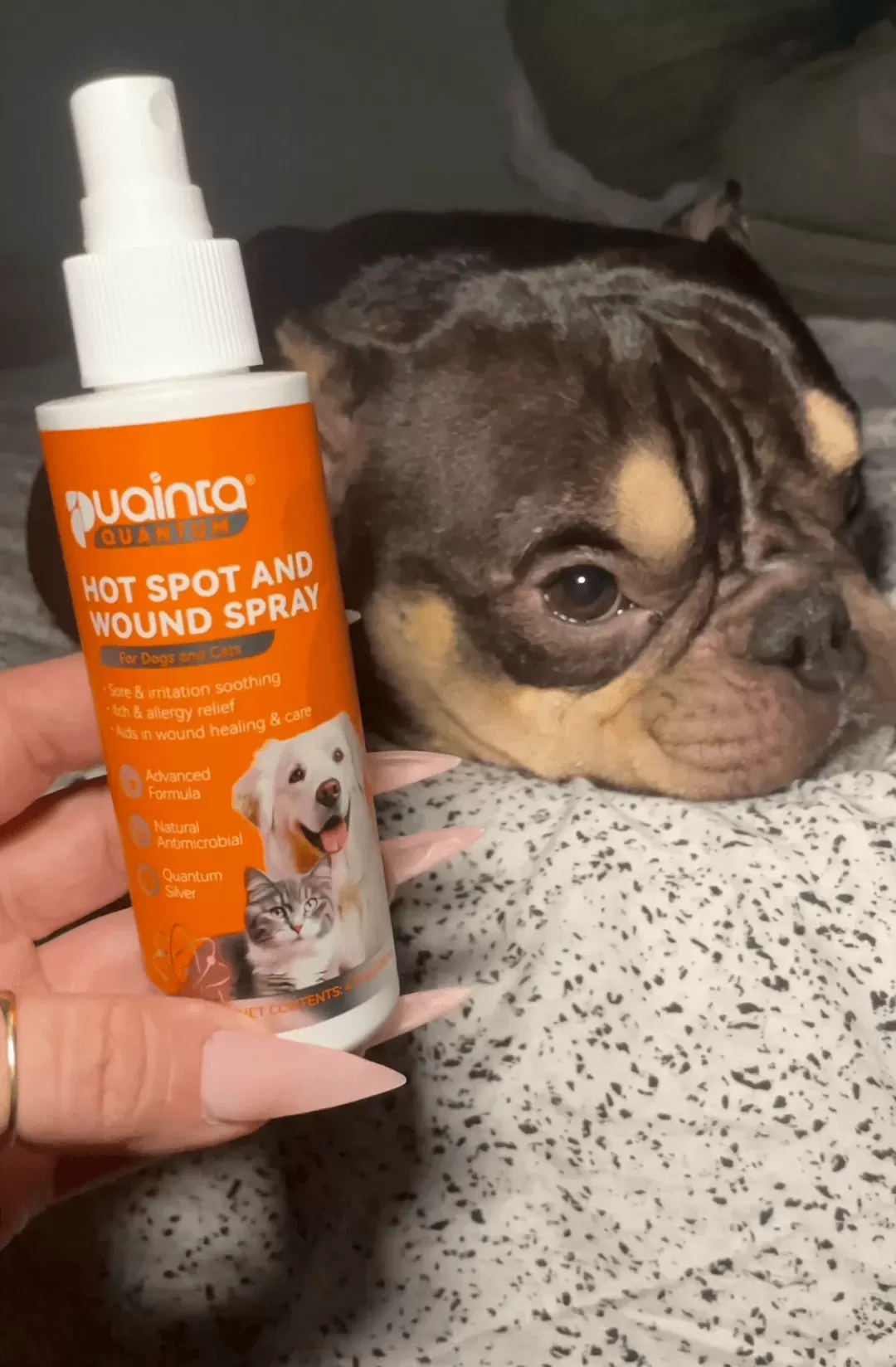



Join The Puainta
Become one of pet parents and get professional tips, immediate product info, updated promotions and discounts, and more surprises from us!



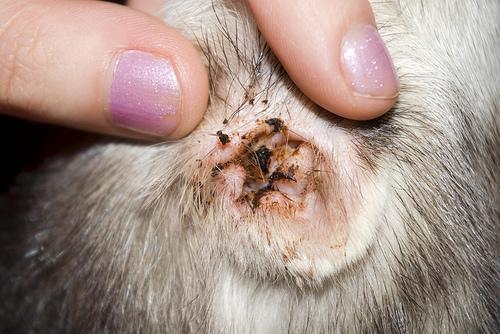
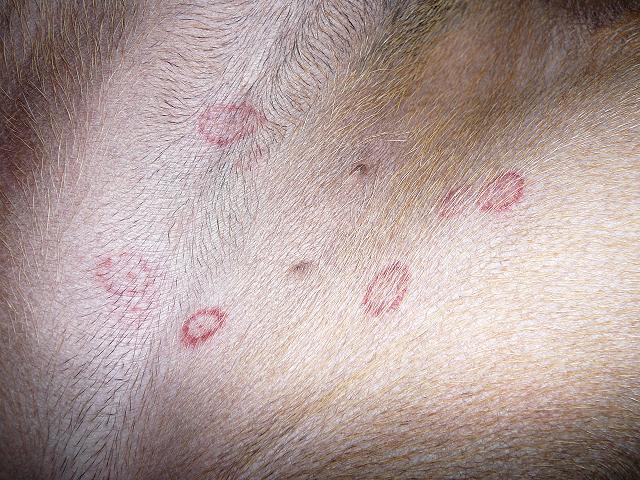

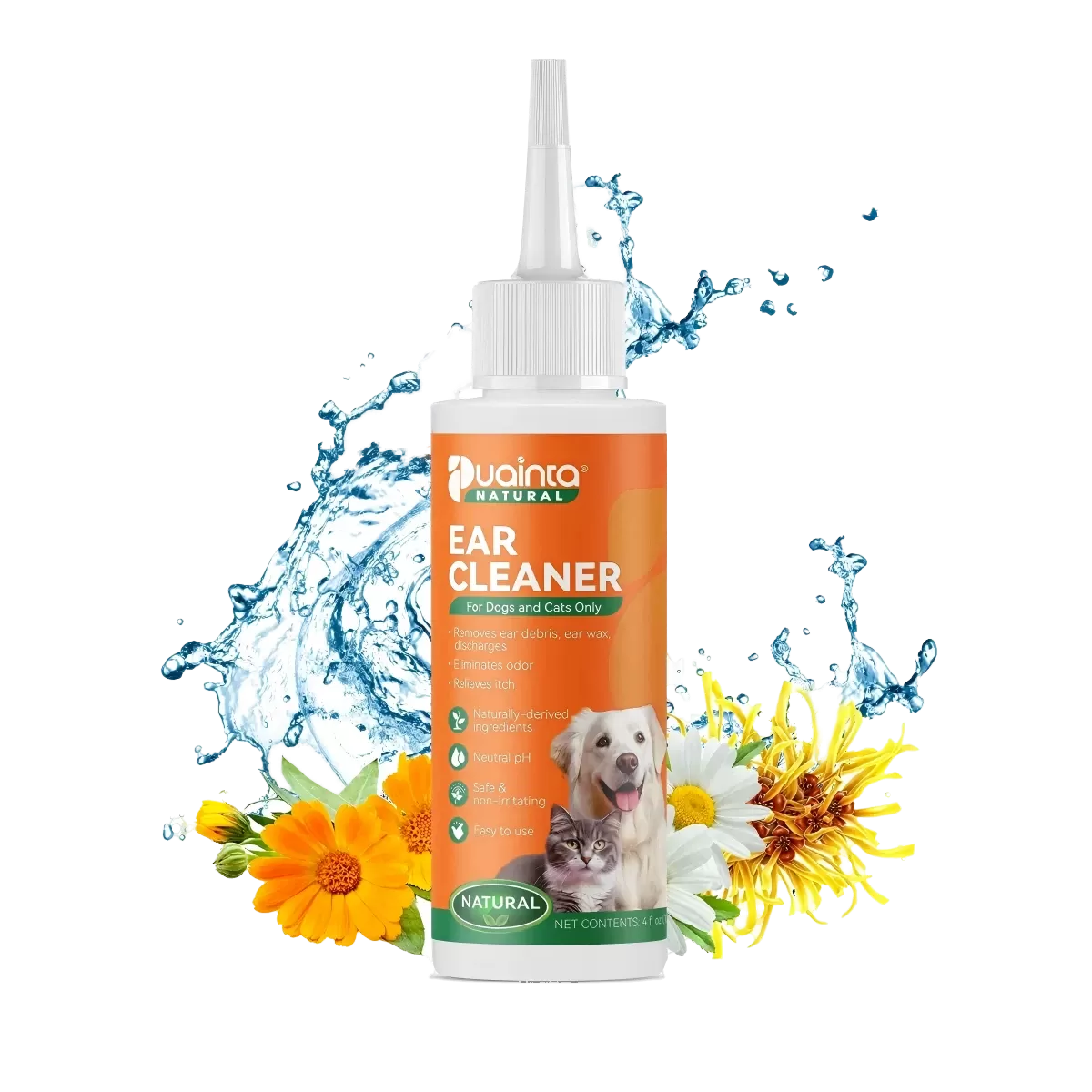









This site is protected by reCAPTCHA and the Google Privacy Policy and Terms of Serviceapply.